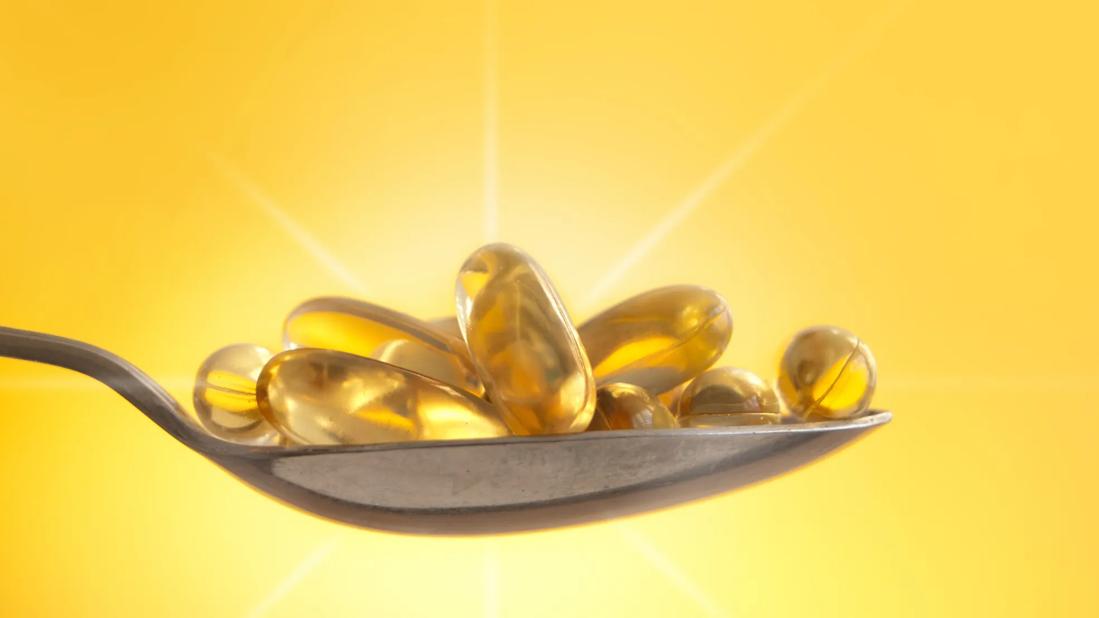This vital nutrient supports your health, but its role in COVID-19 prevention and treatment isn’t proven

Image content: This image is available to view online.
View image online (https://assets.clevelandclinic.org/transform/82cd452e-d5a4-4d13-bab5-1558b2a58ce4/vitaminDcovid19b-1145207411-770x533-1_jpg)
Vitamin D capsules backlit by sunlight
Over the past few years, there’s been buzz about supplements that might protect you from COVID-19. One of the most talked-about is vitamin D — a nutrient essential for bone health and immune function.
Advertisement
Cleveland Clinic is a non-profit academic medical center. Advertising on our site helps support our mission. We do not endorse non-Cleveland Clinic products or services. Policy
So, could boosting your vitamin D levels keep the virus at bay?
Here’s the short answer: Not exactly. And taking too much vitamin D can cause health problems.
While some early studies showed a potential link between low vitamin D levels and worse COVID-19 outcomes, the science isn’t strong enough to say vitamin D can prevent or treat the virus.
“Some of the initial research found that people with lower vitamin D levels seemed to have higher rates of infection and more severe illness,” shares family medicine doctor Donald Ford, MD. “But those studies showed correlation, not causation, which means other factors could be at play.”
For example, a 2020 analysis noted that countries in southern Europe, like Italy and Spain, had higher COVID-19 death rates compared to northern European countries. Researchers speculated that lower vitamin D levels might be part of the reason. These lower vitamin D levels might be from less supplement use and more melanin in the population’s skin, which limits vitamin D production from sun exposure. But again, this doesn’t prove that vitamin D deficiency causes worse COVID-19 outcomes.
Since those early studies, more researchers have looked into how vitamin D might affect COVID-19.
Advertisement
A 2022 review found that people with higher vitamin D levels had better outcomes after contracting COVID-19. These people had:
The benefits were especially notable in people who took vitamin D supplements (50,000 to 100,000 IU) during their illness. Still, the researchers emphasized that more large-scale studies were needed to confirm these benefits.
Similarly, a 2023 review published in the journal Nutrients suggested that vitamin D supplementation might help prevent infection or reduce the severity of illness, especially in people with known deficiencies.
But again, the review noted that current evidence isn’t strong enough to recommend vitamin D as a first-line defense against the virus.
“There may be something here worth studying, but based on what we know now, we can’t say that taking vitamin D will prevent COVID-19,” reinforces Dr. Ford.
The takeaway? Vitamin D may play a supporting role, but it’s not a substitute for proven COVID-19 prevention methods like vaccination, masking in high-risk settings or staying home when sick.
Even if it’s not a COVID-19 cure, vitamin D is still essential for your health. Your body makes it when your skin is exposed to sunlight, but you can also get it from food and supplements.
Vitamin D supports:
Some people are more likely to have low vitamin D (including older adults), people with darker skin and those who spend limited time outdoors.
And you don’t always need a supplement. You can increase vitamin D naturally by:
There’s no magic supplement for preventing COVID-19. While vitamin D plays a key role in your health, the evidence just isn’t strong enough to recommend it specifically to prevent or treat COVID-19.
If you’re concerned about your vitamin D levels or think you might need a supplement, talk to a healthcare provider. They can check your levels with a simple blood test and guide you from there.
Advertisement

Sign up for our Health Essentials emails for expert guidance on nutrition, fitness, sleep, skin care and more.
Learn more about our editorial process.
Advertisement
Chilblain-like skin lesions and rashes are mild (and rare) complications of many viral infections, not just COVID-19
Most can return to work or school when they’re symptom-free for 24 hours
Covering your mouth when you cough and staying home when you’re sick are a couple ways to help keep yourself and others COVID-free
Studies have shown promising results, but additional research is needed
Infection and inflammation can cause you to lose your voice and have other voice changes until you’re fully healed
A COVID-19 infection can bring on depression or anxiety months after physical symptoms go away
Just like the flu, COVID-19 continues to evolve every year with new and smarter variants
The latest omicron subvariants carry specific mutations that may allow the SARS-CoV-2 virus to be better at evading immune protection
Prioritize your health by managing stress, strengthening your social connections and getting quality sleep
Bolsters, blankets, pillows and blocks can offer extra support, stability and comfort
Allergies, postnasal drip, asthma or reflux could be to blame for a cough that won’t quit